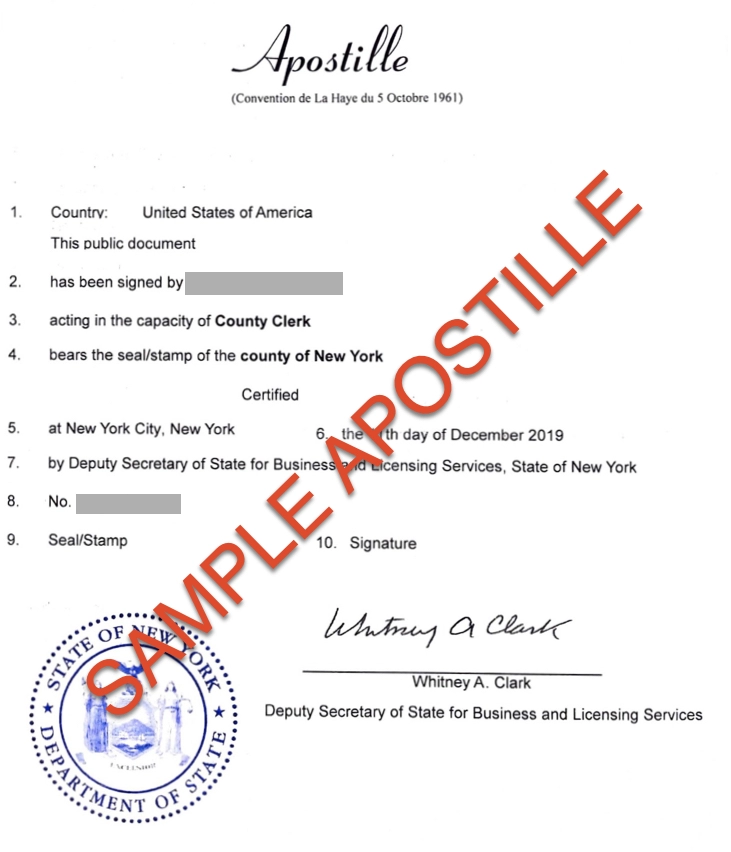Exploring the Factors Behind the Necessary Need of Apostille Qualification for Legal Papers
In the world of legal documents, the required need of apostille qualification has come to be a crucial element that significantly influences the validity and acknowledgment of legal documents on an international range. Recognizing the rationale behind this necessity involves delving into the detailed internet of legal intricacies, historical criteria, and international contracts that highlight the significance of apostille qualification in today's interconnected globe. By discovering the underlying factors behind this widespread demand, a more clear picture arises of why this apparently administrative procedure holds such immense importance for federal governments, people, and companies alike.
Historical Development of Apostille Accreditation
Just how did the idea of apostille accreditation evolve with time to become a crucial part of international paper recognition? The historic advancement of apostille certification days back to the early 20th century. The requirement for a simplified technique of confirming files for usage across boundaries emerged as international profession and travel enhanced. In reaction to this demand, the Hague Conference on Private International Regulation introduced the Apostille Convention in 1961. This international treaty established a structured process for accrediting the authenticity of files to be acknowledged in participant nations.
At first adopted by a couple of European nations, the Apostille Convention progressively gained global approval because of its performance and efficiency in validating the authenticity of official papers. Throughout the years, the convention's reach increased as more countries joined, acknowledging the apostille as a generally approved type of record verification. Today, apostille qualification has actually ended up being a common demand for verifying lawful documents in global deals, guaranteeing smooth communication and legal proceedings between countries.
Simplifying International Paper Legalisation
The streamlining of global paper legalization procedures has significantly boosted effectiveness in cross-border purchases. Streamlining the process of legislating papers for international use has become crucial in promoting swift and smooth deals in between nations. One of the essential systems that have actually added to this simplification is the fostering of the Apostille Convention, which supplies a standardized technique for validating the credibility of files across participating countries.
By sticking to the Apostille needs, countries concur to acknowledge each various other's public papers as valid without the requirement for additional legalisation. This eliminates the commonly difficult and lengthy procedure of numerous verifications by different authorities, saving time and resources for people and companies participated in international tasks.

Guaranteeing Paper Credibility and Validity
To make sure the credibility and legitimacy of legal papers in global transactions, strict verification processes are necessary - Houston Apostille. Legal papers play an essential role in cross-border ventures, and guaranteeing their authenticity is paramount to promote the integrity of such purchases. By needing apostille qualification for legal documents, authorities aim to verify the origin of records and confirm the signatures of people involved. This process assists stop scams, misstatement, and various other malpractices that could endanger legal procedures or worldwide agreements.
Furthermore, click to investigate validating the authenticity of lawful records with apostille qualification boosts trust fund and confidence among events engaging in global transactions. It offers guarantee that the records offered are genuine and legitimately binding, consequently decreasing the dangers related to deceitful tasks. Additionally, guaranteeing paper legitimacy with apostille accreditation simplifies the legalisation process, making it more effective and reputable for organizations and individuals carrying out company throughout boundaries. Ultimately, by promoting strict confirmation requirements, apostille accreditation contributes to a more protected and clear worldwide legal framework.

Facilitating Cross-Border Legal Acknowledgment
In the realm of international purchases, the apostille qualification not just makes sure the authenticity and legitimacy of legal documents yet likewise plays a critical role in facilitating cross-border lawful recognition (Houston Apostille). When legal papers birth an apostille certificate, they are easily approved by international authorities without the need for houston apostille further confirmation. This structured procedure accelerates the recognition of files in various nations, advertising performance and reducing governmental obstacles in legal issues that transcend national boundaries
Promoting cross-border legal recognition with apostille certification cultivates trust fund and self-confidence in the credibility of papers traded between nations. By adhering to the requirements established forth by the Apostille Convention, countries agree to honor the apostille seals attached to documents from other member countries, hence simplifying the procedure of lawful acknowledgment across borders.
Compliance With International Treaty Requirements
Compliance with worldwide treaty standards is important for making sure the consistent application of legal regulations throughout participating countries. The Apostille Convention, established in 1961, details the demands for the approval of public papers among participant nations.
The Apostille certification, as mandated by the treaty, acts as a warranty of authenticity for documents such as birth certifications, marriage licenses, court judgments, and notarized deeds. This standardized approach helps avoid scams and makes certain that lawful documents stemming from one member nation are conveniently approved in another. By complying with international treaty standards, nations demonstrate their dedication to supporting the concepts of transparency, trust, and teamwork in legal issues on a worldwide scale.
Verdict

In the world of legal documents, the obligatory demand of apostille accreditation has become a vital aspect that dramatically affects the validity and recognition of legal papers on a global scale. Today, apostille accreditation has actually ended up being a conventional demand for verifying lawful papers in worldwide purchases, making certain smooth interaction and lawful process between nations.
Moreover, confirming the credibility of lawful records with apostille qualification boosts trust and confidence amongst parties engaging in global purchases.In the world of worldwide deals, the apostille accreditation not only guarantees the authenticity and validity of legal files but also plays a crucial function in facilitating cross-border lawful acknowledgment. By sticking to the requirements established forth by the Apostille Convention, countries concur to recognize the apostille seals affixed to files from various other member countries, hence streamlining the procedure of lawful recognition across borders.